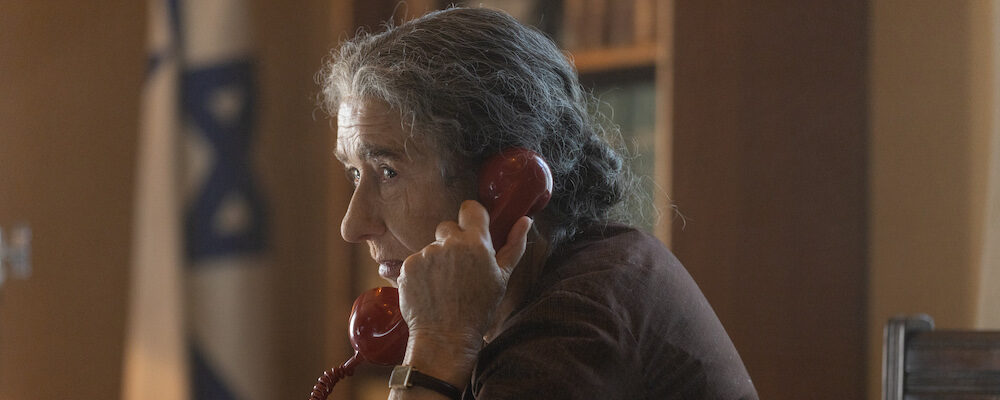‘Golda’: Helen Mirren Gives a Transformative Performance as Israeli Prime Minister
Sandra Miska
Helen Mirren previously won an Oscar for portraying Elizabeth II during one of the most trying times of her reign in “The Queen,” displaying royal dignity while comforting a nation in mourning. Now Mirren stars as a very different world leader, capturing grace under pressure in “Golda.” Here, she portrays Israeli prime minister Golda Meir during the 19 most difficult days of her tenure, the Yom Kippur War.
Although she is one of the finest living actresses, director Guy Nattiv’s casting of Mirren was a controversial move, as she is neither Israeli or Jewish. Nevertheless, she transformed herself for the role, and not just physically. She takes on a distinct demeanor and idiosyncrasies, chain-smoking her way through this war room drama.
Meir has a very interesting backstory. Born in what is now Ukraine and raised in the U.S., she came to Israel as a young woman. There, she started a political career that led to her being elected prime minister in 1969. Unfortunately, the film does not do much in the way of explaining how a woman of relatively humble origins became one of the first elected female heads of states, as it is laser focused on the Yom Kippur War. Nattiv seems to assume that the viewer is already reasonably knowledgeable about Israel and the tense history that led to this particular conflict, only giving a little bit of newsreel-style exposition in the film’s opening.
“Golda” can be easily compared to another fairly recent war room drama, “Darkest Hour,” which follows British prime minister Winston Churchill as he finds himself up against Adolf Hitler. While most viewers could easily cheer for the Brits against the Nazis (hopefully), the war here feels different. The conflict between Israel and the Arab nations is a divisive one, one of those hot topics most people know not to bring up on social media or at parties, and it still rages on today. No matter what one’s feelings are about the situation in that part of the world, they can still appreciate the film for what it is, a portrait of an older woman who is secretly battling cancer while commanding mostly men half her age.
Although we never see Golda interact with her family (she has been a widow for many years at this point), she gives off a lot of grandmotherly vibes, as she lives in a relatively modest home for a world leader and, even though she has a housekeeper, we see her cooking for herself while watching the news, just like any other ordinary woman during this time. But when it comes down to it, Mirren is able to easily access Golda’s tough, decisive side. The actress is also compelling when Meir finds herself almost buckling under the weight of her job, such as when she is asked to make tough calls that would result in a number of deaths. “I’m a politician, not a soldier!” She barks at military leader Moshe Dayan (Rami Heuberger) during one of these moments. She only allows herself to be truly vulnerable around her personal assistant, Lou Kaddar (Camille Cottin), one of the few people who knows about her cancer battle.
A highlight of the film is Golda’s back and forth with Henry Kissinger (Liev Schreiber), the U.S. Secretary of State. While the Soviet Union is backing Egypt and Syria in this war, the States are on the side of Israel, although Golda and Henry do not quite see eye-to-eye as to how much aid the Americans should be giving them. Schreiber gives an understated performance as Kissinger, who is Jewish himself, pushes and pulls with the prime minister.
The film is also filled with the usual war room tropes. A lot of maps are displayed on tables with matches and the like standing in for soldiers. There’s also a lot of military jargon thrown around, and this film is more dialogue heavy than most. In the mix is a secretary who has a loved one fighting in the war, and she is forced to suffer in silence and type away as the powerful figures make possibly devastating decisions.
“Golda” would not be too memorable if it were not for the compelling one-on-one scenes Mirren has with his co-stars. Meir is portrayed here as being far from a showboat, and Mirren is t most effective in the stripped-down scenes. Like most modern politicians, the Golda we see here never witnesses the bloodshed of war firsthand, but she does get to listen in on a failed offensive in one memorable scene that hits home about the cost of what and the weight put on her shoulders.
“Golda” releases Aug. 25 in theaters nationwide.

